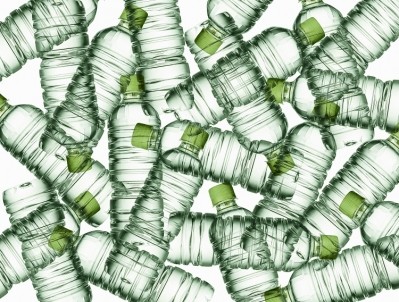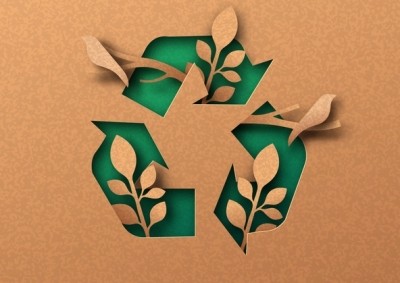EU moves to ban ‘forever chemicals’ and light plastic bags, but throwaway packaging ‘still a long way off’
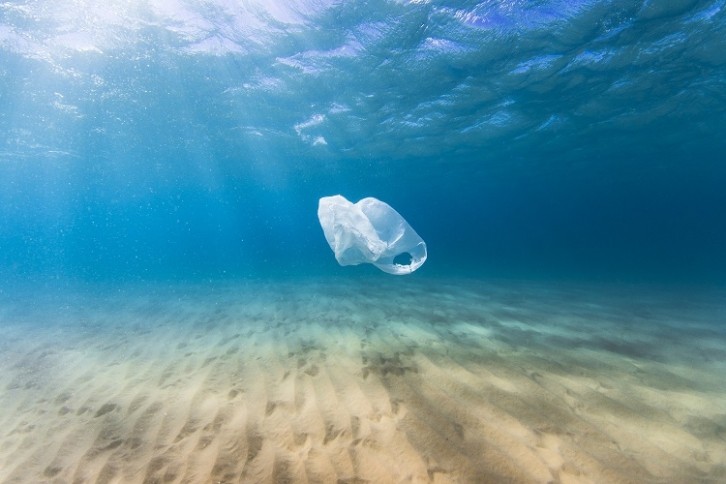
Europe is producing more and more packaging, and with it, more and more packaging waste. In 2009, the EU was responsible for 66m tonnes of packaging waste; by 2021 this figure had soared to 84m tonnes.
Also in 2021, it was calculated that each European generated 118.7kg of packaging waste. It’s feared that in a business-as-usual scenario, that figure will rocket to 209kg by 2030.
In response, policymakers have been developing new EU-wide rules under the Packaging and Packaging Waste Directive to both combat constantly growing waste while boosting reuse and recycling. Yesterday (22 November), the European Parliament votes in favour of revamped legislation: 426 votes in favour, 125 against and 74 abstentions.
MEPs call for a ban on PFAS and BPA
The campaign to ban per- and polyfluorinated alkyl substances (PFAS) in food contact packaging has ramped up in recent years. PFAS are otherwise known as ‘forever chemicals’ because they don’t degrade in the environment. While ingestion of PFAS is not expected to make one acutely ill, health risks increase if significant quantities are consumed over an extended period.
PFAS have been infiltrating the food industry. Various research studies have identified PFAS in organic eggs in Denmark, freshwater fish in the US, and in disposable food packaging across Europe. Even more recently, a PFAS scandal erupted in Belgium, when the region of Wallonia’s water supply was found to be heavily contaminated with so-called forever chemicals.
Calls for an EU-wide ban on ‘forever chemicals’ in food packaging have been building, with the European Consumer Organisation (BEUC) banging the drum. Yesterday, MEPs approved that ban.
“Recent events in Europe, and particularly in Belgium, concerning water pollution by PFAS chemicals show the urgent need for action,” commented Rapporteur Frédérique Ries from pro-European political group Renew Europe in Belgium.
“By voting to ban ‘forever’ pollutants in food packaging, the European Parliament has shown that it seeks to protect the health of European citizens.”
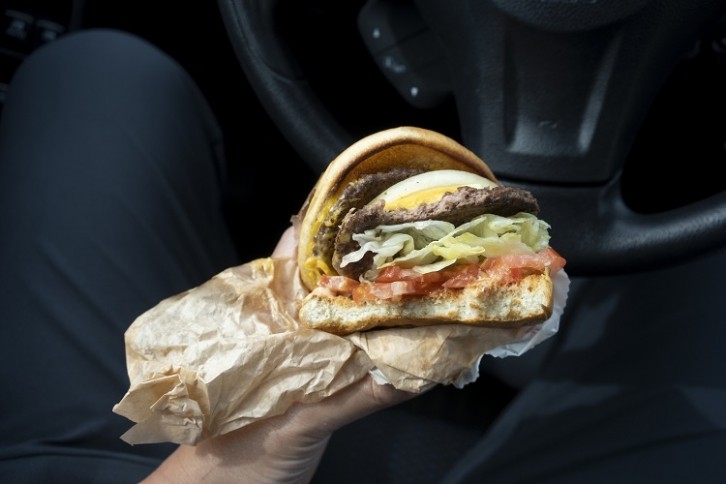
Another chemical used in some food contact packaging, specifically to manufacture polycarbonate plastic, is on the chopping block. MEPs are asking for a ban on Bisphenol A (BPA) in food contact packaging across the board.
BPA has been known to migrate from food contact materials into food and drinks, as such it is banned from some packaging across the bloc such as baby bottles. In France, the chemical is completely banned from food packaging, containers, and utensil production.
Data collected between 2014 and 2020 across 11 European countries identified above-acceptable-levels of BPA in humans. Earlier this year, research conducted by the European Food Safety Authority (EFSA) concluded BPA in food is a health risk, setting a new daily intake limit 20,000 times lower.
Packaging reduction, more reuse and refill
The proposed legislation aims to reduce packaging across all EU Member States, beginning with a 5% reduction in 2030, through to a 10% reduction by 2035 and 15% by 2040. Results from yesterday’s vote suggest MEPs want to set specific targets to reduce plastic packaging: 10% by 2030, 15% by 2035 and 20% by 2040.
“Regarding plastics, the contract has been fulfilled, since my legislative report tackles the heart of the issue by setting tougher waste reduction targets for plastic packaging,” said Ries.
Other ways plastic packaging could be reduced is through the ban of very lightweight plastic carrier bags (below 15 microns), unless required for hygiene reasons or provided as primary packaging for loose food to help prevent food wastage. MEPs are supportive of such a ban.
They also want to encourage reuse and refill options for consumers, which would mean final distributors of beverages and takeaway food in the foodservice sector – ranging from hotels to restaurants and cafes – to give consumers the option of bringing their own container.
Recycling: ‘The end of throwaway packaging is still a long way off’
According to the Packaging and Packaging Waste Directive, all packaging should be reusable or recyclable in an economically feasibly way by 2030. It is expected that certain packaging – for example wood and wax food packaging – will be exempt.
MEPs also want EU countries to ensure that the vast majority (90%) of materials contained in packaging (plastic, wood, ferrous metals, aluminium, glass, paper and cardboard) is collected separately by 2029.
The takeaway packaging industry had raised concerns that foodservice packaging would not be able to be recycled at scale, because the systems and infrastructure do not exist across the EU to collect and recycle takeaway packaging. The issue is that used takeaway packaging is less likely to be disposed off at home, but instead ‘goes everywhere’ and is not systematically collected separately for recycling, explained takeaway packaging association 360˚ Foodservice.
“If the EU bans takeaway packaging for lack of proper collection infrastructure, then European consumers will be saying goodbye to their favourite takeaway meals, it’s that simple,” warned Eamonn Bates, 360˚ Foodservice secretary general, ahead of the vote.
But Rapporteur Ries suggested after yesterday’s vote, throwaway packaging wouldn’t be going anywhere fast. “Unfortunately, on the circular economy, and prevention in particular, the outcome of the plenary vote is not so positive…Of the 3Rs (Reduce, Reuse, Recycle), only recycling escaped unscathed. The end of throwaway packaging is still a long way off!”
A ‘missed opportunity’ for circular plastics packaging?
The soft drinks industry has welcomed the MEPs’ stance, which Soft Drinks Europe (UNESDA) said ‘sends a strong signal’ in support of circularity of beverage packaging and complementarity of reuse and recycling.
MEPs are supportive of mandating the setting up of deposit return systems (DRS), which will help boost the collection of beverage packaging. UNESDA is also supportive of refill enabling systems, to ensure reusable packaging is introduced where and when it makes the most sense from an environmental perspective, said director general Nicholas Hodac. Some concerns regarding the increased targets, which the DG said had been developed without having further impact assessments, persist.
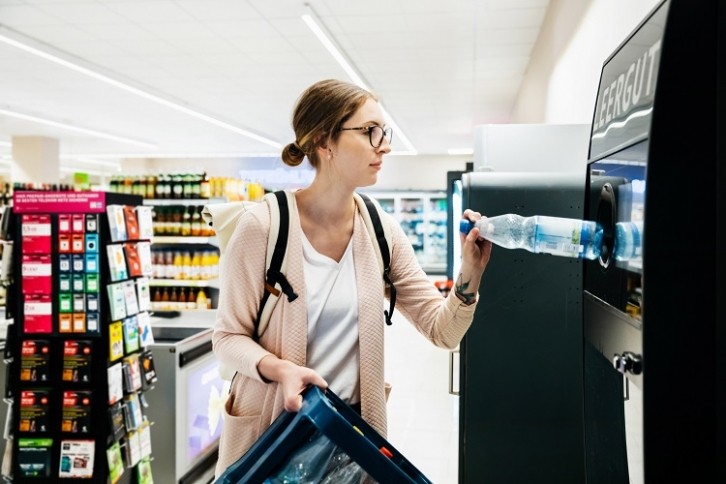
Another industry association, Plastics Europe, welcomed some aspects of the vote, including the rewarding of highly collected or recycled packaging formats. But also described the vote a ‘missed opportunity’ to create incentives for plastic makers to make more packaging circular. For Plastics Europe, the shift to circular plastics packaging requires the right market ‘pull and regulatory conditions’.
The membership organisation was disappointed the Parliament voted for reduced recycled content targets for contact sensitive packaging. “This is a missed opportunity to use the Packaging and Packaging Waste Regulation to boost the development of the market for recycled plastic packaging in Europe,” said Plastics Europe managing director Virginia Janssens.
The trade association is also upset MEPs did not ‘sufficiently’ clarify the role of bio-based plastics and recycled content as ‘separate but complementary’ solutions that ‘contribute to the plastic industry’s sustainability journey’. Overall, Plastics Europe is concerned that regulation is targeting plastics packaging only, when other packaging materials can also be problematic for the environment.
“Whilst politically attractive to some stakeholders, arbitrary reduction targets or measures targeting plastics only are not the answer. They will only encourage the substitution of plastics with other materials without any proven environmental advantages and will not solve the issue of single use packaging,” said Janssens.
“We instead call for an ambitious proposal that creates the positive investment climate required to enable the European plastics system to continue its sustainability journey.”

